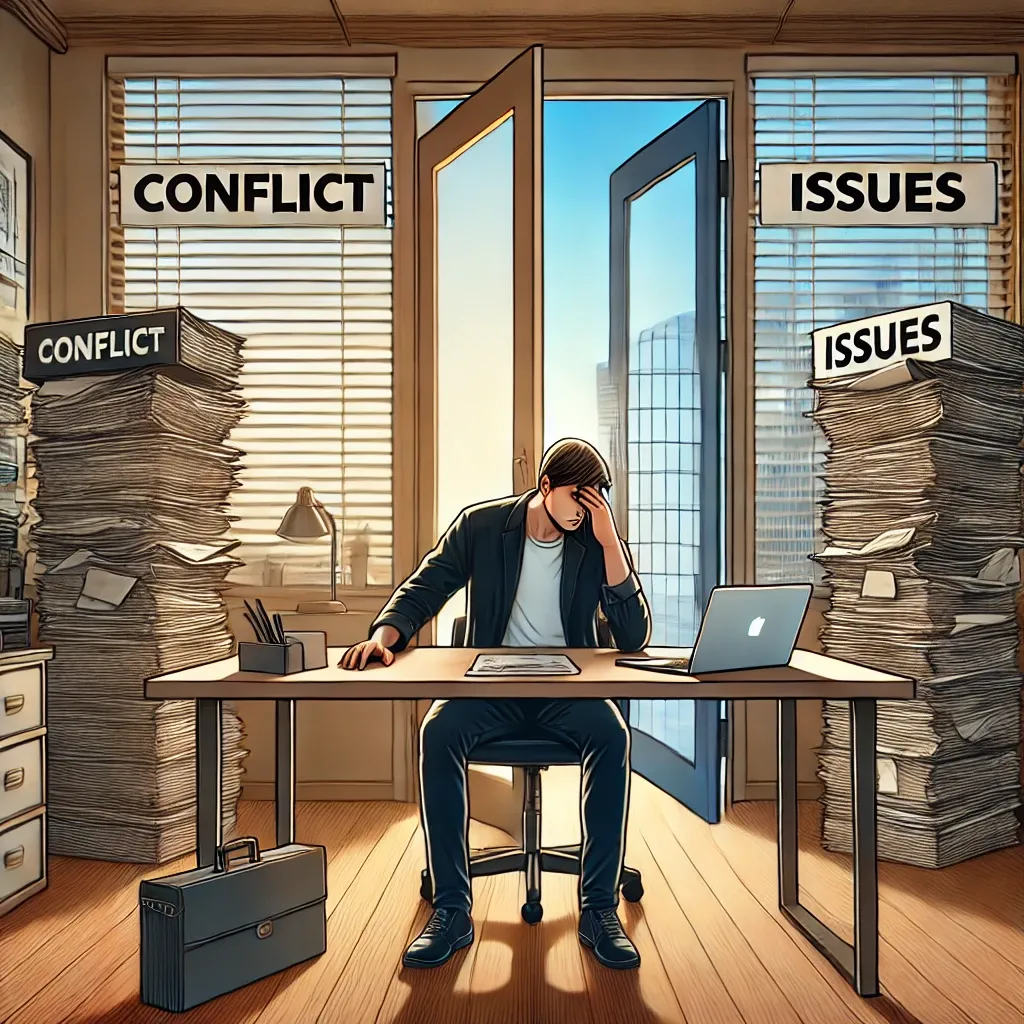Boot them or leave them. The harshest truest startup advice you'll ever get.
Here's my controversial advice: as soon as you know your cofounder isn't working out, boot them or leave them.

‘Tis the season of cofounder breakups. I feel like all of my startup friends are reaching out to me with some new issue they need a listening ear for. I don't know if it's the heat but something is off in the ecosystem.
I'm a solo founder now, for good reason. I worked with an amazing cofounder before this, but having more than one person running around in a business is bound to lead to conflict. And if you don't really really need their skills, you don't need the conflict or the dilution.
So here's my controversial advice: as soon as you know your cofounder isn't working out, boot them or leave them.
Having conflict isn't the same as not working out
Conflict is totally normal. Some things you need to work through, blowing off steam, arguing when you don't see eye to eye, these are all totally normal. They happen in every relationship. And cofounder relationships are particularly complex and fraught. There's lots of stress coming from the outside, there's lots of stress coming from the inside, it's bound to get a little heated at times.
Conflict your startup can bear though is one of two things it's either solvable or it's ignorable.
Solvable conflict
There are two types of solvable conflict. The first is when your cofounder really just needs to be heard. Perhaps they didn't feel like you listened to them, or they feel disrespected, or they just don't feel good about something. Or maybe they're exhausted and they need a break or they're a little disheartened.
All of these are completely normal human emotions and completely normal to talk about within the bounds of a cofounder relationship. This kind of conflict handled well will not tank your startup. You just need to be a good friend to your cofounder.
The second kind of solvable conflict is one arising from poor processes. Often you're either both doing something so you're stepping on each other or neither of you is doing something and you're frustrated that it's not finished.
These are solvable through process. Perhaps you have unclear roles, and you should sit down and do a RACI diagram. Or you don't have a process and a place to write down your key commitments and a regular cadence of catching up on whether those are complete. These are situations in which as frustrated as you may be you and your cofounder both mean well. That means once you get the process in place you can alleviate a lot of the difficult feelings
Ignorable conflict
There are some conflicts that you will never ever agree on but you both agree to disagree and keep moving. These could include things like the brand color, or which of two distribution channels you choose to go down first, or monolith versus microsystems. You're kind of committed to whatever you decide on for a while. Perhaps one person has quite a bit more say than the other. Like say the person actually building the monolith.
The key here is that you don't keep bringing the conflict up again and again you know it's both there you're committed to what you're doing for the moment but it's not eating away at you at 3:00 AM.
That’s ignorable conflict, and also something every relationship has.
Unfixable conflict
This is the persistent damaging conflict that you need to address as quickly as possible. These are not fixable problems and they are not ignorable problems. Examples include the persistent feeling that your cofounder is not pulling their fair share of the weight, a feeling that your cofounder is talking badly about you behind your back, a lack of trust in what your cofounder might do or might say, or even just a realization that you don't really like your cofounder.
What do you do when you have unfixable conflict?
The real answer here? One of you needs to leave. There really is no other way. These problems stem from either a lack of respect between you or a difference in your ability to work through anxiety and get work done or something similar. You can waste years of your life working with a cofounder with whom you have differences like this.
And this is why I'm not a huge fan of the advice that you should pick people you've known forever (your very best friends!) to cofound a startup with. It makes it hard to have these really direct really honest conversations because you have an enmeshed social life. You may feel like you either have a choice of speaking directly or damaging your friendships. Turns out that it's bad for your startup and bad for your friendships. So be fair, be professional, and since you're probably sitting in the non CEO cofounder role you'll probably end up leaving. It is worth having a direct but polite conversation though because you may find that your CEO cofounder is in over their head and would prefer to step down themselves.
It’s always easier to have hard conversations sooner rather than later
I have never talked to a newly sole founder who wishes they'd waited longer to try to fix an unfixable cofounder conflict. And I have never seen a situation where it's gotten easier as more money gets raised or more money gets spent or the business grows and everybody vests. Like so many things, eat the frog now. Get a coach or an advisor or someone to talk it through with you. Get your lawyer to help you if there are questions about equity. Get all the right advice but don't delay acting.
Boot them or leave them. Good luck.
I'm not your lawyer, your therapist, your advisor, or your accountant. We're just internet friends, and these are just my experiences and personal opinions. Consult professionals for advice before you make any sudden moves in your startup.
You will see the occasional affiliate link. I do earn a commission if you buy the products I recommend. I appreciate you buying through the links if you're going to buy. This is a labor of love for my fellow cofounders, and I do love receiving a few coins to pay hosting costs if you like my work.




